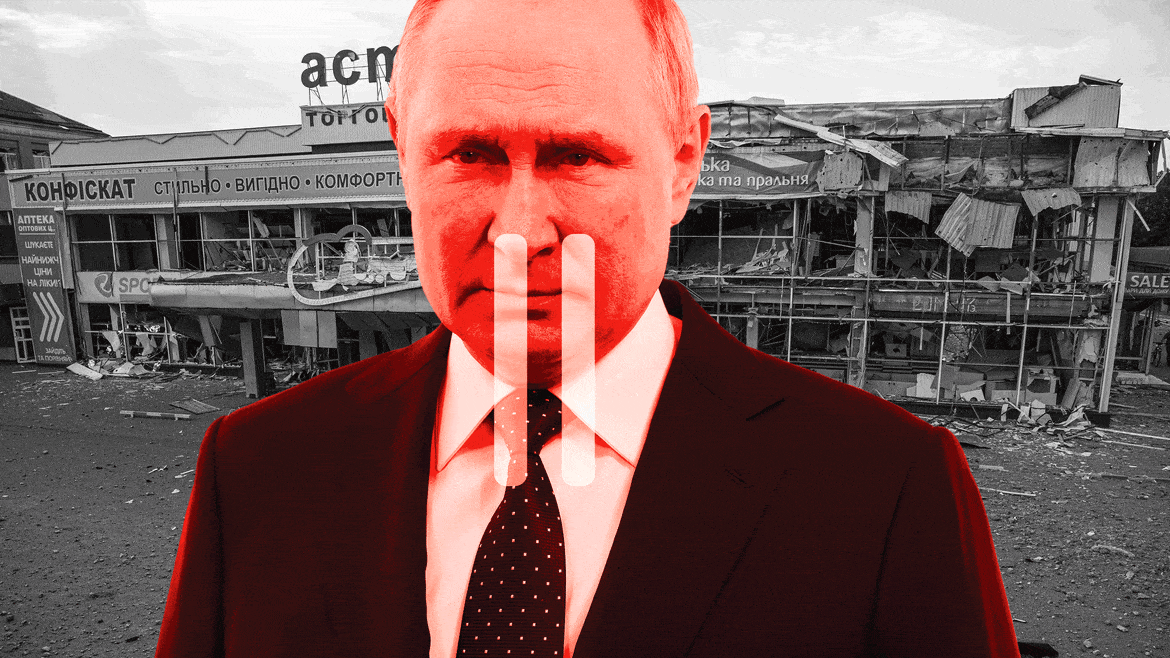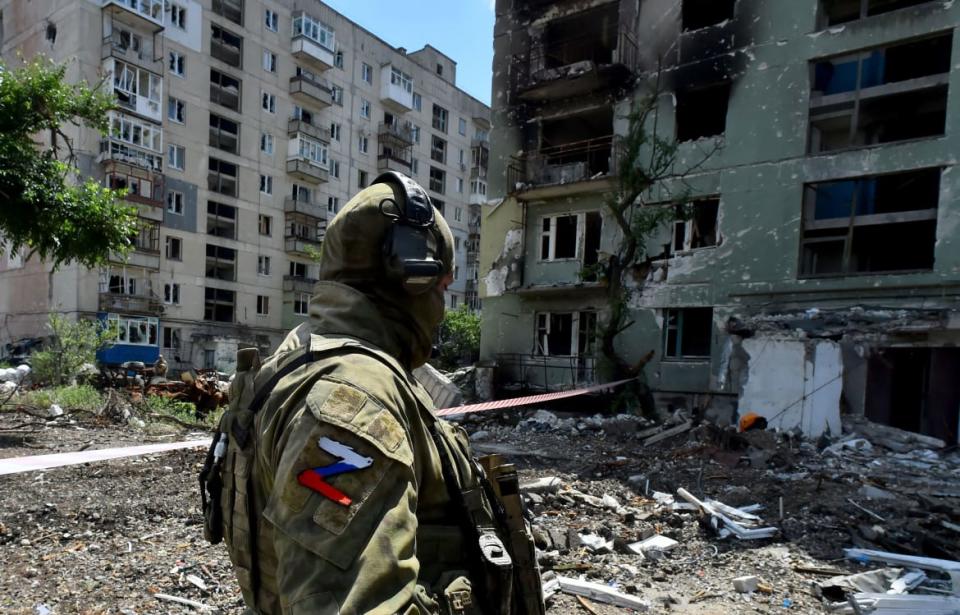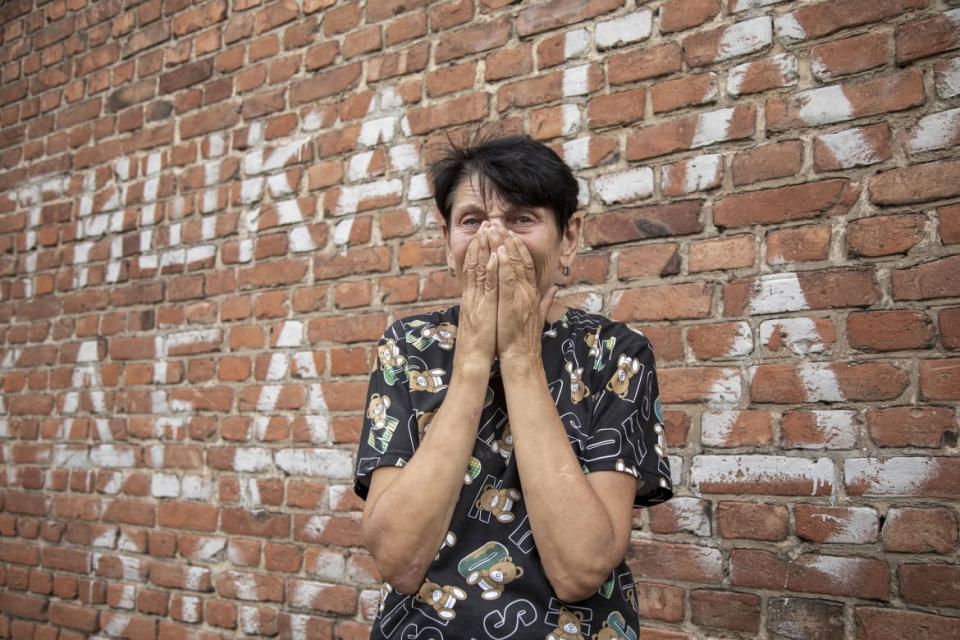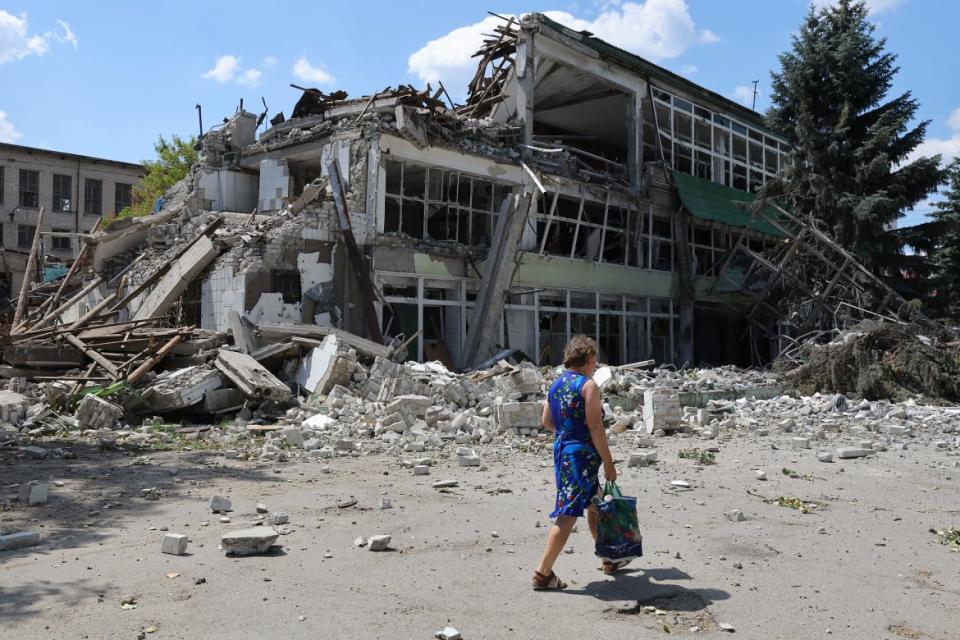The Tricks Putin Is Cooking Up in His Mysterious War ‘Pause’

- Oops!Something went wrong.Please try again later.
After Russian forces took key eastern portions of Ukraine’s Donbas region last week, questions began bubbling up over whether Russian forces were up to the task of going after their next kill in the neighboring region of Donetsk.
And the first inkling that Russian forces might be taking a step back came from President Vladimir Putin himself. The units that were involved in taking Lysychansk and Luhansk should take a brief respite, Putin said—to recoup, regroup, and prepare for more combat in the future, according to TASS.
For a war of attrition—in which both sides are duking it out with the goal of tiring the enemy out to the point of exhaustion and defeat—the pause might not bode well for Russia. Russian forces have struggled to keep up from the beginning. Despite their main objective to take Kyiv, they faltered outside the Ukrainian capital in the early days of the war due to logistical and planning failures. And by the count of Ukraine’s General Staff of the Armed Forces, Russian forces have sustained massive losses, tallying up nearly 40,000 dead troops. Russian soldiers have been complaining for months about their lack of preparedness and low morale.
If the purported operational pause is any indication, the situation may be nearing a point of standstill or deterioration for the Russians, according to some analysts.
“Russian troops that have completed the seizure of Severodonetsk and Lysychansk are clearly in need of regenerating combat power and building up supporting capabilities, including supply, before launching another large-scale offensive operation,” analysts at the Institute for the Study of War (ISW) state in a report.
This Is Putin’s Precious Key to Invading More Countries
Taking an operational pause, though, might also be an indication that Russian forces are wising up to their troops’ needs.
“The lack of scheduled breaks from intense combat conditions is highly likely one of the most damaging of the many personnel issues the Russian [defense ministry] is struggling to rectify amongst the deployed force,” the U.K. Ministry of Defence said Monday.
“Putin’s public comment was likely meant to signal his concern for the welfare of his troops in the face of periodic complaints in Russia about the treatment of Russian soldiers,” the ISW noted.
But as the carnage continues in Ukraine, doubts have bubbled up about whether Russia is actually running an operational pause.
Putin hasn’t stopped running airstrikes against Ukraine. On Tuesday, Russian forces launched missiles in the Donetsk region, killing four and injuring eight, according to Pavlo Kyrylenko the head of the Donetsk Regional Military Administration. Russia bombarded Bakhmut overnight. Two missile strikes in the Zaporizhzhya region injured seven, according to Kyrylo Tymoshenko, deputy head of the Office of the Ukrainian President.

A Russian serviceman patrols a destroyed residential area in the city of Severodonetsk on July 12.
Of course, Putin may not have meant the operational pause to apply to all Russian military operations. Putin built in a sizable dose of confusion into his announcement that he was interested in his troops taking a little pause; the other military formations that weren’t involved in the Luhansk onslaught in recent days, in fact, were ordered to carry on with their duties, according to TASS.
The purported pause for certain portions of Russian forces isn’t all that surprising after a major offensive, though, according to Michael Kofman, research program director in the Russia Studies Program at CNA. Some forces are naturally going to regroup after a fight, while others are going to continue their operations as usual.
“The forces involved in taking Severodonetsk and Lysychansk are likely going to take a pause. He did not suggest that the Russian military overall was taking an operational pause," Kofman said. “What do people expect, for them to just keep attacking endlessly? What war has that ever happened in?”
The Russians in recent weeks have appeared to make some gains in their strategic planning. In the fight for Lysychansk and Luhansk earlier this month, Russian forces were able to launch their offensive so effectively because they were able to coordinate two of their fighting groups more than ever before, according to a British intelligence assessment.
Even so, the fact that Russian forces are likely taking a beat to regroup doesn’t mean they are going to come back and decisively win the war.
“Both militaries lack the force capacity for sustained offensives right now, and can’t generate momentum,” Kofman told The Daily Beast. “This means that, particularly for the Russian military, advances come through heavy use of fires and attrition and then a phase during which Russian forces are forced to consolidate territory, reconstitute, and bring up additional reserves before they're able to make advances.”
The utility of an operational pause, and the extent to which the Russian military is committed to actually carrying one out, though, even for a portion of its forces, remain to be seen.
“It is not clear, however, that the Russian military will accept the risks of a long enough operational pause to allow these likely exhausted forces to regain their strength,” the ISW said.
The U.S. Department of Defense, for its part, isn’t even sure whether an operational pause is happening.

A resident reacts emotionally as she surveys a residential building killing that was bombed, resulting in at least 15 deaths in Chasiv Yar on July 10.
“If I took the number of casualties that the Russians took to gain that portion of ground, I’d probably have to stop and refit,” a senior U.S. defense official told reporters last week. As “somebody who’s been around the military for a while… if you’ve taken the losses you have—gain the ground you did—that you're probably slowing a little bit to get things together.”
In the coming days, it may not be clear when the Russian forces shift from a pause to a more offensive stance, the ISW assessed.
“The transition out of the operational pause may be gradual and difficult to discern at once, just as the transition into it appeared gradual,” the ISW notes.
And part of the alleged pause may just be a bait and switch anyways, intended to throw off Ukrainian forces who so desperately want Russia to be taking a backseat in the war.
“Skillful campaign design aims to achieve precisely such an effect in order to persuade the enemy that no pause is contemplated or underway, or that it will be too short to be of benefit to the enemy, and thereby convince the enemy that it does not have the opportunity to seize the initiative and go over to a counter-offensive of its own,” the ISW said.
Putin’s Cronies Told to Ditch Summer Vacation for Mystery ‘Emergency Meeting’
In the meantime, Russians are facing off with an increasingly formidable Ukrainian military. Ukrainian forces have been able to step up their game in recent days, thanks in large part due to the influx of western weapons and training, including the American-supplied High Mobility Artillery Rocket System (HIMARS).
Mykhailo Podolyak, an adviser to Ukrainian President Volodymyr Zelensky, said Ukrainians used the HIMARS to attack a Russian ammunition depot in Nova Kakhovka early this week, and Ukrainians destroyed two Russian ammunition depots in the Luhansk region Tuesday, Serhii Haidai, head of the Luhansk Regional Military Administration said. Ukraine has also destroyed a military base the Russians were using in Myrne, Ivan Fedorov, the mayor of Melitopol, said.

A resident passes by a destroyed building in Lysychansk, Lugansk region, on July 4.
But in the coming days, the devil is in the details, and no matter how long the operational pause lasts, exactly how the next phase of the war shapes up will depend on the extent to which Western allies and the North Atlantic Treaty Organization are willing to support Ukraine with equipment and gear even further.
“The Russian military appears to enjoy an advantage of firepower but that is increasingly being balanced by the artillery ammunition being provided to Ukraine,” Kofman said, noting that the HIMARS appear to be helping Ukrainians advance the fight. “This could have significant effects on the Russian military’s ability to sustain the offensive over time.”
Get the Daily Beast's biggest scoops and scandals delivered right to your inbox. Sign up now.
Stay informed and gain unlimited access to the Daily Beast's unmatched reporting. Subscribe now.

